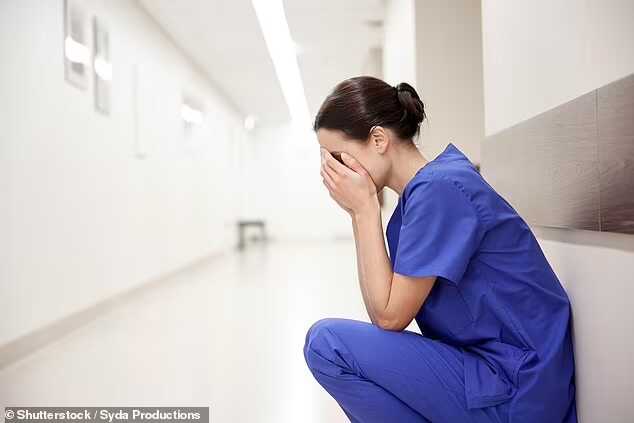
The NHS is having to pay out around £165,000 a week in compensation to staff members who are assaulted by violent patients.
Records show that £31.4million was paid out in 1,496 cases over the last seven years, with legal fees nearly doubling the bill for the taxpayer at £28.4million.
Around £21,000 was paid out to each victim on average, but in some cases this figure was much higher.
In one example, a mental health nurse was awarded £475,000 after a patient threw a television at her, while a healthcare assistant got £55,000 after a dementia sufferer kicked her, pulled her hair and held her face against a kitchen worktop.
The violent disorder has gotten so bad in recent years that many A&Es now have security guards to tackle patients crazed on drink or drugs.
NHS figures also showed that 217 members of the public also received compensation for hospital attacks in the same seven-year period. These pay-outs only happen if the health service admits it should have done more to protect victims.
Matthew Tuff, of the Association of Personal Injury Lawyers, told The Mirror: ’No one should ever go to work and suffer violence when they are simply doing their job and helping others.’
The NHS added: ’Any assault or abuse towards NHS staff is completely unacceptable. We expect swift action to be taken against anyone found responsible of abuse.

Records show that £31.4million was paid out in 1,496 cases over the last seven years, with legal fees nearly doubling the bill at £28.4million (file image)
’The NHS remains fully committed to tackling abuse against staff with programmes of work.’
Figures also revealed that over the past two years nearly 700 legal cases linked to the preventable skin infections were settled.
Bed sores – also known as pressure ulcers – develop when a patient’s skin is damaged from pressure in one spot continuously, due to a lack of movement.
If left untreated they can become a blister or an open wound, resulting in debilitating pain or even life-threatening infections.
The compensation data, gained via a Freedom of Information request by medical bed firm Opera Beds, shows that Sheffield Teaching Hospitals paid out the most, at £1.7million over 12 cases.
Prevention of bed sores includes regular repositioning by staff if a patient is bed-bound or immobile, the use of pressure‑relieving devices, skin care and nutritional support.
The data also revealed that East Suffolk and North Essex NHS Foundation Trust saw a reduction in the number of reported pressure sores by 81 per cent in the past year.
The Trust said this was, in part, due to staff being trained on how to prevent bed sore, while patients were also advised to move as regularly as they can, use pillows to elevate affected areas as well as being reminded to stay hydrated to avoid the condition.
The Royal College Nurses (RCN) warned that preventing pressure sores can be ’lifesaving’ but staffing shortages are in part to blame.
An RCN spokesman said: ’Vital care like this can get overlooked due to the chronic nursing staff shortages, which must be addressed.’
A study published in the BMC Nursing journal earlier this month found that 90 per cent of bed sore injuries could be prevented.
Read more similar news:
Comments:
comments powered by Disqus































